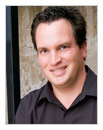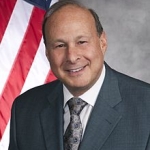At 2:05pm on Sunday, June 27th the New York Neo Futurists were preparing to take the stage to perform 10 new plays to celebrate the culmination of the 50th Anniversary Summit. That’s right—a total of 10 brand new original short plays based on dozens of interviews with attendees and the group’s experience as the Artists in Residency at the 2010 Summit. I was fortunate to not only be interviewed by the New York Neo-Futurists (henceforth the Neos) but also to participate in their “re-charging movement-based activities” during the Networking Break on Saturday.
I jumped at the opportunity to interact with this group of dynamic performers by scheduling an interview. I know of the Chicago Neo Futurists from an episode in 2003 of the radio program This American Life, which adapted the idea of performing 30 plays in 60 minutes from the Neos’ show, Too Much Light Makes the Baby Go Blind (Although the radio broadcast only included 20 acts in 60 minutes.)
The Neo Futurists opened at the Stage Left Theater in Chicago on December 2, 1988. Written and performed by the eight-person ensemble, the Neos were first conceived and directed by Greg Allen. The New York version debuted in 1995 but after two years took a hiatus. Resurrected in their current form in 2004, the New York Neos and are now going strong performing Too Much Light Makes the Baby Go Blind at the Kraine Theater (85 East Fourth Street).
Drawing from their namesake, the Italian Futurists, the Neos come from a rich tradition of performance artist history ranging from the Dadaists and Happenings in 1960s to low-tech participatory theatre in the 1980s. Eschewing the ideas of conventional theatre performances: character, setting, plot, and the separation of audience and performer, the Neos thrive on audience interaction. Attendee interviews were just one way that the Neos facilitated this in Baltimore.
Read More


 We are all advocates of the arts. If you are in the profession in any way – educator, administrator, creator, or all of the above – you are, by nature, an arts advocate. And all of us agree that one of the key points in arts advocacy is making arts education a priority. But did you know that it’s not just a priority, but according to the federal government, it’s a part of the core curriculum?
We are all advocates of the arts. If you are in the profession in any way – educator, administrator, creator, or all of the above – you are, by nature, an arts advocate. And all of us agree that one of the key points in arts advocacy is making arts education a priority. But did you know that it’s not just a priority, but according to the federal government, it’s a part of the core curriculum?













